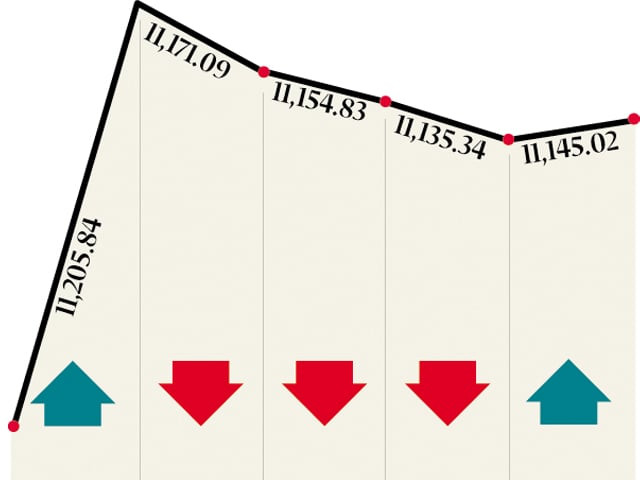Misaligned incentives: How tax collection targets ruin long-term fiscal stability
FBR officials insist that reform is not possible when the finance ministry keeps setting higher numerical targets.

Pressure from the government, particularly the finance ministry, to raise tax revenues every year forces the Federal Board of Revenue to rely on short-term measures that reduce the ability of the government to improve its long term revenues.
According to several officials who have served in the FBR, the government’s obsession with seeing an increase in the amount of revenues collected every year, regardless of the costs of doing so, results in a system where every official is constantly thinking about short term goals and nobody is tasked with developing long term strategy.
“You have to be willing to accept a temporary dip in revenues in order to implement strong reforms,” says one former income tax official.
Federal tax collection stands at around 9.1% of the total size of the economy, one of the lowest tax-to-GDP ratios in Asia.
Every official who spoke to The Express Tribune agreed that the country’s tax collection efforts suffer from skewed incentives on the part of the tax man: FBR officials are judged on their ability to meet what is often an arbitrary revenue target and not on their ability to reform the structure of taxation.
Perhaps the biggest manifestation of the impact of these skewed incentives is the presumptive tax regime. Introduced in 1990, the presumptive regime converted direct taxes to effectively indirect taxes by levying them through withholding on transactions.
Instead of asking individuals and businesses to declare their financial records, the government simply withheld taxes from transactions. For example, if a business imports goods and sells them onto the local market, the government would levy a withholding tax on the payment it makes when the goods land at the port, in addition customs and excise duties. The company would then be exempted from filing an income tax return, and thus has no incentive to document its income.
The presumptive tax regime was initially introduced as a means of getting around the fact that most of the Pakistani economy is cash-based and undocumented. Yet, perversely, now that the system is in place, it has removed the incentives for businesses and individuals to document their economic activity.
The withholding tax is declared a “full and final tax liability” which means that a person paying withholding tax will not have to pay any income tax and will not even need to declare that income if they file tax returns for other income.
Businesses in Pakistan seem to be comfortable with the current system. In 2002, when the government tried to remove the ghee sector from the presumptive regime, the industry lobbied hard to resist and even went as far as offering to pay 33% more in withholding taxes rather than having to disclose their financial records to the government.
“The presumptive tax regime increased tax collection when it was first introduced,” said Abdullah Yousuf, who was FBR chairman from 2004 to 2008. “So even though it ruins our ability to document the economy, we persisted with it. However, in principle, it should be changed.”
An analysis by The Express Tribune of the government’s tax collection efforts, based on historical data provided by the FBR and the Federal Bureau of Statistics, suggests that there was no appreciable increase in the tax to GDP ratio, though it did substantially increase the proportion of revenue collected under the head of “direct taxes”, which had been declining as a percentage of tax revenues for the preceding decade.
Yet, some FBR officials insist that to call the withholding tax a “direct tax” would be a misnomer and that is more adequately described as just another form of indirect taxation, since its effects are passed on by the taxpayer to their customers.
In the fiscal year 2009, the latest year for which detailed figures are available, the ratio between direct to indirect taxes was 38.2% to 61.8%. Yet if withholding taxes are included in the indirect taxes column that figure changes dramatically to 13.3% direct taxes and 82.7% indirect taxes.
The government has not really improved direct tax collection, say these FBR officials: they have just added another indirect tax and severely compromised their own ability to levy more direct taxes in the future.
FBR officials insist they need several years to reform the system and cannot do so as long as the finance ministry continues to insist on more revenue every year. Some FBR officials even say that the first few years of reform are likely to see a decline in revenue as the government shifts away from the presumptive tax regime.
But Yousuf said that the pressure by the finance ministry on the FBR seems to have increased dramatically over the past three years.
Published in The Express Tribune, May 26th, 2011.



















COMMENTS
Comments are moderated and generally will be posted if they are on-topic and not abusive.
For more information, please see our Comments FAQ